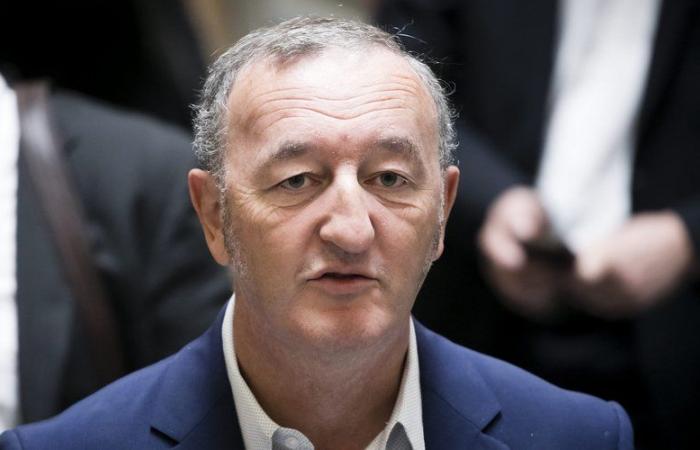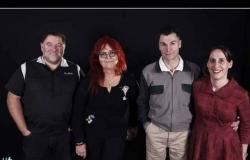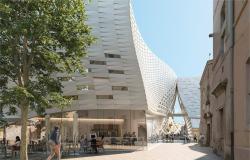
The director of the Radio-France Festival, Michel Orier, sets the tone for the 39th edition of the major music festival which will take over Montpellier and its surrounding area from July 8 to 20 in a fireworks display of stars: Evgeny Kissin, Marianne Crebassa, Renaud Capuçon, John Eliot Gardiner, Air, Chris Potter, Henri Texier, Pretty Yende, etc.
Last year, you launched the “New Radio-France Festival”, and it worked so well that you are offering a new format again this year?
Yes, because I think that every year there has to be something new. It’s like a writer: when he’s finished one, he starts from a blank page, he has recipes or not, but he has to write everything again. The festival has changed direction, it’s not the same sensitivity, nor the same identity. It existed before us, it will still exist after, but for now, it’s our new approach.
An approach that you are questioning from your second edition…
First of all, because I don’t like repetition. Even though it worked really well last year, that it was very fluid, very pleasant, that it immediately met with very strong public support, we have to try to go further in what we tried, yes, to go all the way with the gesture. And therefore not to do the same thing again. But we don’t touch the spirit of the festival: very open, far from clichés, which makes things heard that we don’t necessarily hear elsewhere. Not necessarily unknown things, by the way. I’m thinking for example of “Music for 18 musicians” by Steve Reich, which has never been performed in Montpellier and which it was urgent to make heard: it’s a piece that revolutionized music in the 20th century!
In the editorial of the program, you have this formula: “Trust the public who in the end will choose the path that goes from each to all”….
This is my conviction. When you are convinced of the necessity of a work, of its beauty, of its urgency, you know that there will necessarily be an audience for it. We exist only for that. I am a music lover, not a musician, but that is my job: to suggest paths that allow everyone to be interested and that in the end, it creates a community; a small tribe or a large group, it depends sometimes, but an audience, yes. That is what is exciting about my job.
If you give voice to what is not heard elsewhere, you do not deny yourself great works….
Because there would be something of condescension in saying that, since it is popular, ultimately, it is not worth it. I do not agree with that. In classical music, the most popular works are all without exception masterpieces and why should we deprive ourselves of them? It is always a pleasure to perform them, but also a difficulty! The greatest have done them, we must rise to that level. And then, it is like an entry path, it clears your head and then opens you up to listening to lots of different things. After Mozart’s Requiem (which Julien Chauvin will conduct on July 15), you can listen to Webern as much as you want!
The great artists are also there: Evgeny Kissin, Marianne Crebassa, Renaud Capuçon, John Eliot Gardiner, etc.
We owe the best to people. To tear ourselves away from home, from the world we live in, which is difficult and complicated, to sit in a concert hall, among people we don’t know, yes, it’s something, it’s an effort. The best can be unknown people who will turn out to be extraordinary when we discover them, but also international stars. But we have to be modest: they are stars for us but not necessarily for the passerby on the street corner. In any case, they are the best. I pay close attention to that: we owe it to the public to invite the best of the best. Take Renaud Capuçon, who opens the festival: he plays a lot but he is the greatest French violinist, a fascinating musician, and it’s great to have him!
Radio-France’s programming also has the particularity of designing festival styles. This year, it includes a Bach festival!
Yes, there are several lines drawn through the programming. Working on the idea of transcendence brought us to Bach… which is the basis. He went to the end of music, so to speak: after him, it was necessary to consider it differently. We will thus give Geoffroy Couteau the opportunity to do his first Goldberg Variations, this Everest. The same for Ophélie Gaillard with the Suites for solo cello. Daniel Lozakovich will also do the Partitas, the Diotima quartet The Art of Fugue and we will also hear Bach with the young soloists Ninon Hannecart-Ségal, on the piano, and Julien Beautemps, on the accordion…
Tohu-Bohu, the electronic music meeting place, is coming to Domaine d’O!
This place, this environment, this situation slightly offset from the heart of the city, all of this will give a different atmosphere to the event. It also allows us to work around: the day of July 13 with the possible succession of Sylvain Rifflet, Steve Reich and Air. If we want a festival to capture the energy of a city, we have to channel it place by place. Tohu-Bohu which was launched on Place Dionysos will find its Dionysian spirit at the Domaine d’O.
Jazz also has a festival within the festival…
Last year, I admit that I made a mistake thinking that we could go from one concert at the Domaine d’O to another at the Théâtre de l’Agora. It was too complicated. This time, we alternate: Chis Potter (with Brad Mehldau!) and Cécile McLorin Salvant are at the Domaine d’O, for example, and Henri Texier, Marc Ribot, Avishai Cohen are at the Agora. In both cases, we have a great proximity and sound, what’s more, under the stars, a dream!
The orchestra academy is finally a project that is close to your heart…
About twenty young European instrumentalists will join the forces of the Philharmonique de Radio France for two weeks of sharing with the tutoring of 13 soloists from the orchestra, but will also have chamber music programs at the Fabre Museum, do Peter and the Wolf for young audiences at the Opéra-Comédie, Schoenberg’s Transfigured Night in the Pasteur Hall. From year to year, it will grow. This academy is destined to become the heart of the festival.





